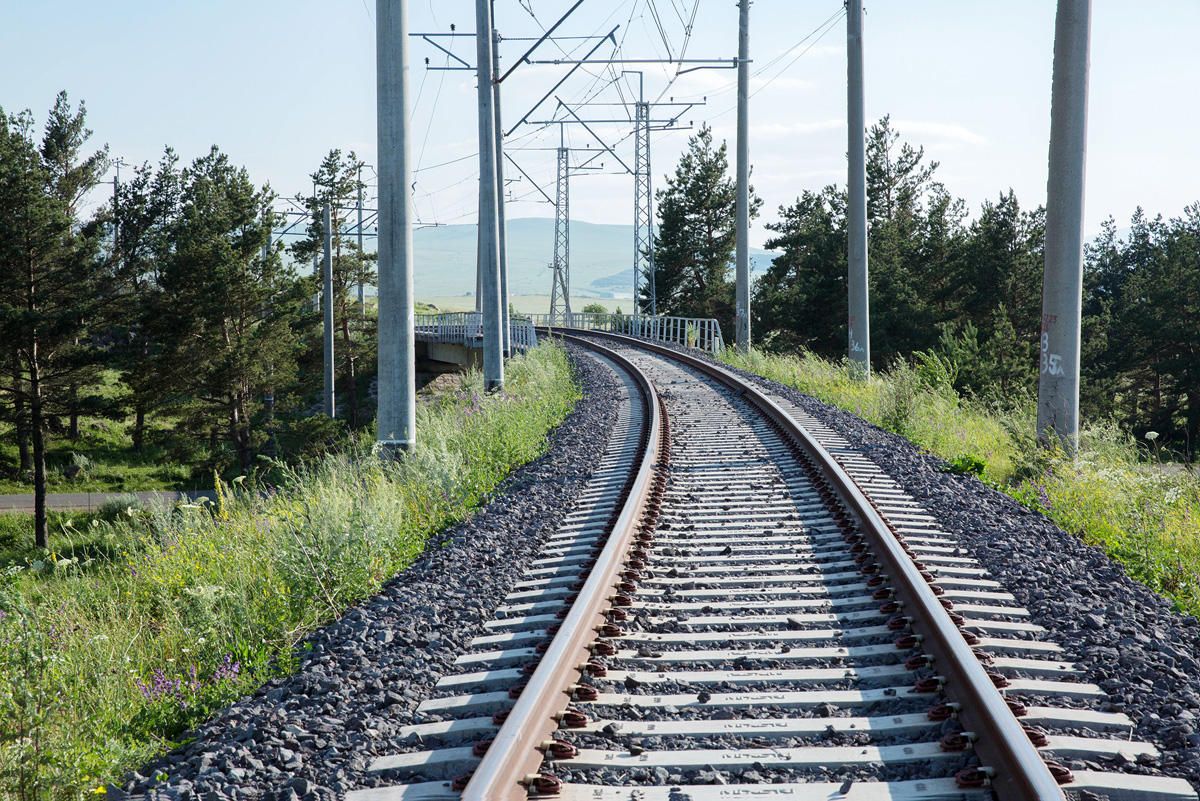The modernization of Azerbaijan’s railway infrastructure has taken a new step forward with the completion of digital train traffic management on the Baku-Boyuk Kesik line, a key segment of the international transport corridor connecting Azerbaijan with Georgia, Azernews reports citing the Russian company Natsproektstroy.
Specialists of its subsidiary 1,520 Signal have equipped the Ujar-Hajigabul railway section with advanced digital automation systems. This marks the final stage of digitalization along the corridor, replacing outdated relay systems with a modern, computer-based platform.
The introduction of the new technology significantly enhances efficiency. Passenger train speeds on the Baku-Boyuk Kesik line will rise from 100 to 140 kilometers per hour, while freight train speeds will increase from 80 to 120 kilometers per hour. The interval between trains will also be reduced from 20 minutes to just 8 minutes, improving both passenger services and cargo throughput.
With the upgrade, station dispatchers now have the ability to remotely manage switches and signals, set routes, and monitor equipment performance in real time. The system also allows for early detection of malfunctions, ensuring smoother operations. In total, the new digital management covers six stations, 19 crossings, and more than 120 switches across the section.
The project was carried out in partnership with Rail Trans Service, with Azerbaijan Railways CJSC serving as the main customer. Its completion forms part of the large-scale overhaul of the Baku-Boyuk Kesik route, a 600-kilometer modernization initiative launched in October 2015.
According to earlier calculations, in order to support an annual freight capacity of 5 million tons, the route will require at least 70 locomotives, supplemented by 50 new units. Additionally, around 1,500 freight wagons and 30 passenger wagons are expected to be needed to meet demand.
The significance of this modernization is amplified by its connection to the Baku-Tbilisi-Kars (BTK) railway line, which serves as a vital link between Trans-European and Trans-Asian rail networks. The BTK line itself stretches 102.3 kilometers—26.3 km of which lies in Georgia and 76 km in Türkiye—and has a total project cost exceeding $1.1 billion. Of this, $775 million was invested in Georgia, largely financed by Azerbaijan, while $345 million covered the Turkish segment.
The digitalization of the Baku-Boyuk Kesik line not only enhances Azerbaijan’s domestic railway capacity but also strengthens the country’s role as a transit hub in the South Caucasus. With rising demand for efficient East-West and North-South transport corridors, these upgrades place Azerbaijan in a stronger position to capitalize on shifting global trade routes.

